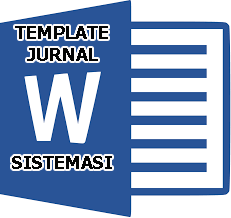Creating Android-based System Aiding Tebuireng Waste Bank Management using Looker Studio
Abstract
Keywords: Bank Sampah Tebuireng, Android, Kodular, Looker Studio, Black Box Testing.
Full Text:
PDFReferences
F. M. D. Tsai, “A causal municipal solid waste management model for sustainable cities in Vietnam under uncertainty: A comparison,” Resour. Conserv. Recycl., vol. 154, no. November 2019, p. 104599, 2020, doi: 10.1016/j.resconrec.2019.104599.
The World Bank, “Solid Waste Management,” 2022. https://www.worldbank.org/en/topic/urbandevelopment/brief/solid-waste-management (accessed May 20, 2023).
D. C. Wilson and C. A. Velis, “Waste management - Still a global challenge in the 21st century: An evidence-based call for action,” Waste Manag. Res., vol. 33, no. 12, pp. 1049–1051, 2015, doi: 10.1177/0734242X15616055.
SIPSN, “Sumber Sampah,” 2022. https://sipsn.menlhk.go.id/sipsn/public/data/sumber (accessed Mar. 23, 2023).
et al Siddiqua, “An overview of the environmental pollution and health effects associated with waste landfilling and open dumping,” Environ. Sci. Pollut. Res., vol. 29, no. 39, pp. 58514–58536, 2022, doi: 10.1007/s11356-022-21578-z.
P. Rajesh, “Solid waste management- sustainability towards a better future, role of CSR – a review,” Soc. Responsib. J., vol. 15, no. 6, pp. 762–771, 2019, doi: 10.1108/SRJ-11-2018-0286.
F. L. Syaiful and I. Hayati, “Inovasi Pengolahan Sampah Plastik Menjadi Produk dan Jasa Kreatif di Kenagarian Kinali Kabupaten Pasaman Barat,” J. Hilirisasi IPTEKS, vol. 4, no. 4, pp. 233–240, 2021, doi: 10.25077/jhi.v4i2.542.
et al. Yuliesti, “Strategi Pengembangan Pengelolaan Rantai Pasok dalam Pengelolaan Sampah Plastik,” J. Ilmu Lingkung., vol. 18, no. 1, pp. 126–132, 2020, doi: 10.14710/jil.18.1.126-132.
A. Wibowo, E. Setyawati, Najmudin, and Axl Adilla, “The Effect of Implementing Android based Information System on Waste Management,” Int. J. Econ. Bus. Manag. Res., vol. 06, no. 07, pp. 179–189, 2022, doi: 10.51505/ijebmr.2022.6712.
G. F. Fitriana, A. Hashina, and N. A. F. Tanjung, “Pengembangan Aplikasi Pengelolaan Sampah Berbasis Android Studi Kasus Bank Sampah Desa Kalibagor,” J. Dinda Data Sci. Inf. Technol. Data Anal., vol. 2, no. 2, pp. 97–102, 2022, doi: 10.20895/dinda.v2i2.741.
A. Sansprayada and K. Mariskhana, “Implementasi Aplikasi Bank Sampah Berbasis Android Studi Kasus Perumahan Vila Dago Tangerang Selatan,” J. Inov. Inform., vol. 5, no. 1, pp. 24–34, 2020, doi: 10.51170/jii.v5i1.30.
S. Widaningsih and A. Suheri, “Sistem Informasi Pengelolaan Data Bank Sampah Berbasis Web di Kabupaten Cianjur,” IJCIT (Indonesian J. Comput. Inf. Technol., vol. 4, no. 2, pp. 171–181, 2019, doi: 10.31294/ijcit.v4i2.6489.
S. A. Hendrawan and D. Setyantoro, “Pemanfaatan Dashboard Business Intelligence untuk Laporan Penjualan pada Superstore,” TEKINFO, vol. 23, no. 1, pp. 294–310, 2022, doi: 10.1093/oseo/instance.00168151.
Paudel, Pant, Manandhar, and Gautam, “Towards Effective Solid Waste Management: A Mobile Application for Coordinated Waste Collection and User-official Interaction,” Int. J. Inf. Technol. Comput. Sci., vol. 16, no. 1, pp. 13–25, 2024, doi: 10.5815/ijitcs.2024.01.02.
I. Bakti, F. Zubair, Yustikasari, and P. Subekti, “Android-based waste management information system,” Libr. Philos. Pract., vol. 2020, 2020.
I. Al Fatah and S. D. Sancoko, “Design of Android-based Waste Bank Management System to Improve Waste Management Efficiency,” vol. 186, no. 4, pp. 26–31, 2024.
R. Destriana, N. Handayani, S. M. Husain, and A. T. P. Siswanto, “A Research to Design, Develop and Implementation of Android Application System for Waste Bank Sharia Community at Kampung Hijau Kemuning,” IOP Conf. Ser. Mater. Sci. Eng., vol. 1115, no. 1, p. 012042, 2021, doi: 10.1088/1757-899x/1115/1/012042.
J. Mantik, S. Wahyuni, T. Komputer, and F. sian dan Teknologi, “Mozaik BUMDES Waste Bank Application Development using Android-based GPS,” J. Mantik, vol. 6, no. 3, pp. 2685–4236, 2022.
R. S. Pressman, Book review: Software Engineering: a Practitioner’s Approach, vol. 10, no. 6. 1995. doi: 10.1049/sej.1995.0031.
W. Suryn, Software Quality Engineering: A Practitioner’s Approach, vol. 9781118592. 2014. doi: 10.1002/9781118830208.
DOI: https://doi.org/10.32520/stmsi.v13i3.3960
Article Metrics
Abstract view : 77 timesPDF - 58 times
Refbacks
- There are currently no refbacks.

This work is licensed under a Creative Commons Attribution-ShareAlike 4.0 International License.









